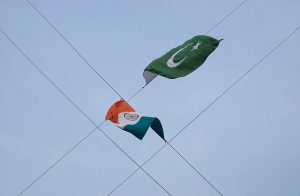A European non-governmental organization (NGO), EU DisinfoLab, has unearthed a sophisticated disinformation campaign originating from India which has been targeting Pakistan since 2005. EU DisinfoLab labelled the campaign “Indian Chronicles.” Allegedly, a major player in the campaign is India’s largest wire service, ANI, which has been amplifying content produced on fake media outlets.
Last year, EU DisinfoLab uncovered 256 pro-Indian websites operating across 65 countries and traced them back to a New Delhi-headquartered Indian holding company, the Srivastava Group. A think tank affiliated with the Srivastava Group organized a visit by 27 Members of the European Parliament to Kashmir in October 2019.
EU DisinfoLab now reports that the operation led by the Srivastava Group has spread to some 117 countries and has targeted members of the EU and the U.N. The most damning piece of evidence is that 10 U.N. Human Rights Council-accredited NGOs have been used to promote Indian interests and criticize Pakistan internationally. Reportedly, the campaign also hijacked the identity of a deceased international law scholar and Harvard Law School professor to promote its goals.
These are important developments from Pakistan’s perspective which recently packed a powerful punch of its own in the war of narratives against India by publishing a dossier allegedly containing evidence of India’s sponsoring terrorism in Pakistan. Since the 9/11 attacks in the United States, Pakistan has been in the cross-hairs of international pressure to “do more” to eradicate terrorism in its territory. Yet Pakistan has now alleged that it is the victim of a sinister hybrid war emanating from India. Could this be the turning point Pakistan had been hoping for? Pakistan’s image took a severe beating since 9/11 over allegations of sponsoring terrorism. In June 2018, it landed in the Financial Action Task Force (FATF) gray list due to allegations that the country failed to stem money laundering and financing for terrorist entities. Since then, Pakistan has struggled to get its name removed from the FATF gray list with the hope of getting its economy back on track.
After Imran Khan took over as prime minister of Pakistan in 2018, Pakistan has gone to some lengths to resurrect its global image. It has assumed a central role in the Afghan peace talks by bringing together the warring factions in Afghanistan and introduced new legislation to criminalize money laundering and terrorist financing. The present government is trying to inculcate a “soft image” of the country and is hoping to undo the negative image that has haunted Pakistan for decades.
In November, Pakistan handed over its dossier on India’s terror campaign to the United Nations, the P5 members of the U.N. Security Council and the Organization of Islamic Countries claiming that it had “irrefutable evidence” of India financing, training, harboring and supplying weapons to terrorists operating in and against Pakistan. The U.N. Secretary General is said to have promised to study the dossier and take appropriate action. Pakistan is also reported to have warned the U.N. Secretary General that it “reserves the right to act in self-defence.”
Yet no one knows what acting in self-defense could mean for Pakistan. With a fledgling economy and an image problem, Pakistan’s best bet would be to opt for deeper engagement with the world at large.
Luckily for Pakistan, its job seems to have been made easy. India, under Prime Minister Narendra Modi, has been drifting toward extremism. In August 2019, the Modi government effectively revoked Article 370 of India’s constitution that led to the disputed territory of Jammu & Kashmir’s autonomy being revoked in disregard of United Nations resolutions. In 2019, India also passed the controversial Citizenship (Amendment) Act legislation that offers preferential treatment to non-Muslim immigrants from certain neighboring countries as they seek Indian citizenship on grounds of religious discrimination.
It is too early to tell how Pakistan’s lawfare against India will pan out. However, some options it could likely exercise against India are the following.
First, Pakistan will most likely supplement its dossier with the “third party perspective” presented in the EU DisinfoLab report, something that was previously missing in its anti-India narrative. Second, Pakistan will engage with world powers traditionally hostile to Pakistan’s perspective to make them “soften” their stance towards Pakistan. Third, it will try to convince international organizations to pursue legal action against Indian natural and juristic persons named in the EU report who made representations before those organizations. Lastly, Pakistan’s best bet would be to table a resolution against India at the United Nations General Assembly with the hope of obtaining a resolution condemning India for its actions.
Despite the timing of the European NGO report, which comes right after Pakistan’s own dossier, it will find it hard to undo fossilized narratives about itself and India. India’s drift towards extremism – condemnable no less – does not automatically elevate Pakistan’s international stature. This is where the truth lies for Pakistan, and it will face an uphill task in convincing the world to see it through a new lens as the victim of Indian aggression.
The author is a practicing international lawyer and a graduate of Harvard Law School. He can be reached at: [email protected]

































